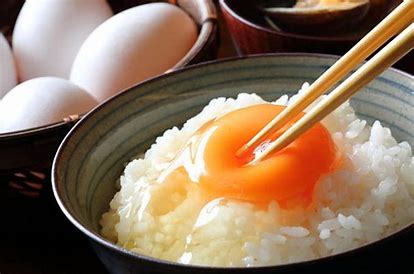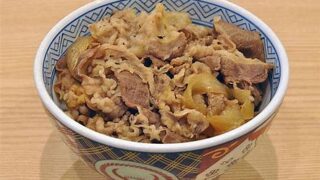Today I’m gonna tell you why Japanese people eat raw eggs .
Eating raw eggs is a practice not unique to Japan, but it is indeed more common and culturally accepted there, compared to many Western countries. The reasons for this culinary preference are rooted in tradition, health considerations, and the quality of eggs produced in Japan. Here’s why raw eggs are a staple in the Japanese diet:
1. High Quality and Safety Standards
- Strict Regulations: Japan has very stringent regulations regarding egg production, ensuring they are safe to consume raw. These standards cover the entire process from chicken feed, egg collection, cleaning, and packaging to distribution.
- Freshness: The eggs are often consumed very fresh, reducing the risk of salmonella or other bacterial infections. The distribution system in Japan ensures eggs reach consumers quickly.
2. Dietary Traditions
- Traditional Dishes: Raw eggs are used in various traditional Japanese dishes. For example, “tamago kake gohan” (egg over rice) is a simple, popular breakfast dish where a raw egg is mixed with soy sauce and served over hot steamed rice.
- Sukiyaki and Other Hot Pots: Raw eggs are used as a dip for meats and vegetables cooked in dishes like sukiyaki, adding a rich, creamy texture that complements the savory flavors of the dish.
3. Nutritional Value
- Rich in Nutrients: Eggs are a great source of high-quality protein, vitamins, and minerals. Consuming them raw can preserve some vitamins and nutrients that might be diminished during cooking.
- Culinary Preference: Many people find that raw eggs enhance the flavor and texture of certain dishes, adding a silky, rich dimension that cooking might alter.
4. Cultural Acceptance
- Food Safety Perception: The Japanese public has a high degree of trust in their food safety regulations and the quality of their domestic produce. This confidence extends to consuming raw foods, not only eggs but also seafood, like sashimi.
- Educational Aspect: Japanese people are often educated from a young age about which foods can be safely consumed raw and how to prepare them properly to minimize health risks.
Considerations
While the consumption of raw eggs is common in Japan due to the reasons mentioned above, it’s important to note that not all eggs worldwide are produced under the same conditions. In many places, consuming raw or undercooked eggs may increase the risk of foodborne illness. Japan’s unique combination of cultural, regulatory, and quality factors makes the practice safer and more widespread there.
In summary, the practice of eating raw eggs in Japan is supported by a culture that values fresh, high-quality ingredients and has established rigorous standards to ensure food safety. Combined with traditional dishes that celebrate the texture and flavor of raw eggs, this practice is both a cultural and culinary tradition in Japan.
Enhanced Safety Protocols
- Egg Farming Practices: Japanese egg producers often vaccinate hens against salmonella, a primary concern with raw egg consumption. This proactive approach significantly reduces the risk of contamination.
- Temperature Control: From farm to store, strict temperature controls are maintained to ensure eggs remain fresh. This level of diligence is crucial for minimizing the growth of harmful bacteria.
Culinary Integration
- Tamago Kake Gohan (TKG): This dish, a comfort food for many Japanese, highlights the egg’s role in enhancing the umami flavor of rice. It’s often personalized with toppings like seaweed, furikake (seasoned flakes), or even truffles for a luxurious twist.
- Raw Egg in Condiments: Beyond TKG, raw eggs are used in mayonnaise, sauces, and dressings, showcasing the versatility of eggs in Japanese cuisine.
I love TKG😍😍😍
Me too!
Don’t forget to use soysause for TGK!
I can’t eat TGK without soysause.

Cultural Perspective and Education
- Risk Awareness: Japanese consumers are generally well-informed about food safety. There’s a widespread understanding of which egg products are safe to consume raw, supported by clear labeling standards.
- Cultural Acceptance: The practice of eating raw eggs is not seen as out of the ordinary but rather a normal part of a healthy diet. This cultural acceptance is supported by historical practices and the continuation of these traditions in modern cuisine.
Nutritional Considerations
- Bioavailability: Some nutrients in eggs, such as certain B vitamins, are more bioavailable when the egg is consumed raw. Cooking can reduce the availability of these nutrients, making raw consumption appealing from a nutritional standpoint.
- Protein Quality: While cooking eggs makes the protein easier to digest for some, others prefer the texture and believed nutritional benefits of raw eggs, particularly when incorporated into dishes designed around their raw consumption.
Safety and Public Trust
- Public Trust in Food Safety: Japan’s rigorous approach to food safety has cultivated a high level of trust among its citizens. Regular inspections and a transparent food safety system reassure consumers about the safety of consuming raw eggs.
- Labeling and Traceability: Eggs in Japan are often sold with detailed labeling, including the date of lay, ensuring consumers can make informed choices about freshness and safety.
International Perspective
- Contrast with Other Countries: In many countries, the consumption of raw eggs is advised against due to the risk of salmonella. This difference highlights the importance of local food safety practices and regulations. Japanese tourists and residents abroad often miss the ability to safely consume raw eggs, a testament to its cultural and culinary significance.
In sum, the consumption of raw eggs in Japan is a multifaceted practice, deeply ingrained in the nation’s dietary culture. It is supported by a combination of high safety standards, nutritional beliefs, culinary traditions, and an educated public. This complex interplay of factors ensures that the practice is both safe and cherished, reflecting broader themes of respect for tradition, quality, and safety that characterize Japanese food culture.
If you wanna try TKG,I recommend that Matsuya or Sukiya are good!They have TKG on breakfast menu.


It would be good experience.





